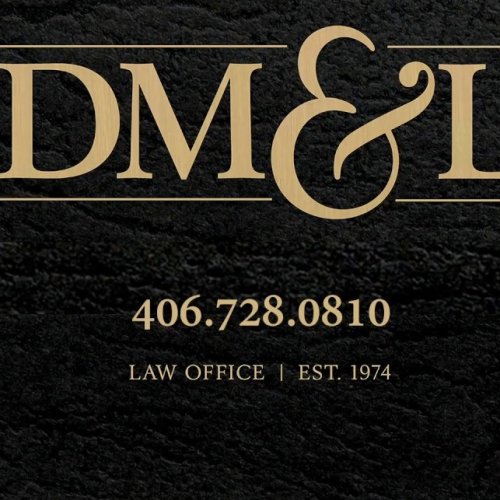Best Arrests & Searches Lawyers in Missoula
Share your needs with us, get contacted by law firms.
Free. Takes 2 min.
List of the best lawyers in Missoula, United States
About Arrests & Searches Law in Missoula, United States
The law regarding arrests and searches in Missoula, United States, is designed to protect the rights of individuals while ensuring public safety. It is important to understand your rights and responsibilities when it comes to encounters with law enforcement officers.
Why You May Need a Lawyer
There are various situations where you may require legal help in arrests and searches. Some common examples include:
- If you believe your rights were violated during an arrest or search
- If you have been falsely arrested or wrongfully accused of a crime
- If you need guidance on how to handle interactions with law enforcement officers
- If you want to understand the potential consequences of an arrest or search
- If you need assistance in navigating the legal system
Local Laws Overview
In Missoula, United States, certain local laws apply specifically to arrests and searches. Here are some key aspects to keep in mind:
- Law enforcement officers must have probable cause or a valid search warrant to conduct a search.
- If you are arrested, you have the right to remain silent and the right to an attorney.
- The evidence obtained through an unlawful search may not be admissible in court.
- Missoula has specific regulations regarding the use of force by law enforcement officers.
Frequently Asked Questions
1. Can the police search my property without a warrant?
In most cases, the police cannot search your property without a warrant or your consent. However, there are exceptions, such as if they have probable cause to believe that a crime is being committed or if exigent circumstances exist.
2. What should I do if I believe my rights were violated during an arrest or search?
If you believe your rights were violated, it is important to remain calm and cooperate with law enforcement. Take note of any details about the incident, including officers' names and badge numbers, and contact a lawyer as soon as possible to discuss your options.
3. Can I refuse a search if the police ask me to consent?
Yes, you have the right to refuse a search if the police ask for your consent. It is generally advisable to clearly and respectfully communicate your refusal. However, remember that the police may proceed with a search if they have probable cause or a valid search warrant.
4. What are the potential consequences of an arrest?
The consequences of an arrest can vary depending on the specific circumstances and the charges involved. They may include fines, probation, community service, imprisonment, or a permanent criminal record. Consulting with a lawyer can help you understand the possible outcomes in your particular case.
5. How do I find a lawyer to assist me with my arrest or search case?
You can start by asking for recommendations from trusted friends, family, or colleagues. Additionally, you may contact local legal aid organizations, bar associations, or use online directories to find experienced criminal defense attorneys in Missoula, United States.
Additional Resources
For further assistance and information, you can refer to the following resources related to arrests and searches:
- Missoula Police Department (Website: www.missoulapolice.com)
- Missoula County Sheriff's Office (Website: www.mcsomt.org)
- Missoula Legal Aid Services (Website: www.missoulalegaladvice.org)
- American Civil Liberties Union (ACLU) of Montana (Website: www.aclumontana.org)
Next Steps
If you find yourself in need of legal assistance regarding an arrest or search in Missoula, United States, consider taking the following steps:
- Stay calm and cooperate with law enforcement while asserting your rights.
- Contact a reputable criminal defense attorney who specializes in arrests and searches.
- Provide the attorney with relevant details of your situation and any evidence you may have.
- Follow your attorney's advice and guidance throughout the legal process.
- Maintain open communication with your attorney and diligently attend required court appearances.
Lawzana helps you find the best lawyers and law firms in Missoula through a curated and pre-screened list of qualified legal professionals. Our platform offers rankings and detailed profiles of attorneys and law firms, allowing you to compare based on practice areas, including Arrests & Searches, experience, and client feedback.
Each profile includes a description of the firm's areas of practice, client reviews, team members and partners, year of establishment, spoken languages, office locations, contact information, social media presence, and any published articles or resources. Most firms on our platform speak English and are experienced in both local and international legal matters.
Get a quote from top-rated law firms in Missoula, United States — quickly, securely, and without unnecessary hassle.
Disclaimer:
The information provided on this page is for general informational purposes only and does not constitute legal advice. While we strive to ensure the accuracy and relevance of the content, legal information may change over time, and interpretations of the law can vary. You should always consult with a qualified legal professional for advice specific to your situation.
We disclaim all liability for actions taken or not taken based on the content of this page. If you believe any information is incorrect or outdated, please contact us, and we will review and update it where appropriate.








